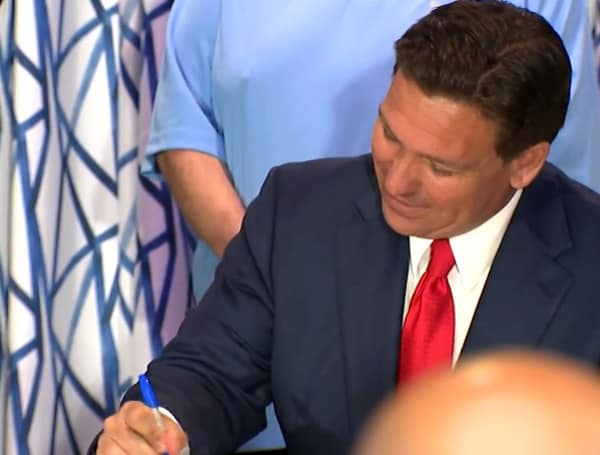
Florida Governor Ron DeSantis vetoed a bill Friday that aimed to loosen housing restrictions for legally verified agricultural workers in the state.
The vetoed legislation, known as CS/SB 1082, was designed to prohibit local governments from adopting or enforcing any laws that would inhibit the construction of housing for these essential workers on agricultural lands.
“The bill’s terms apply to legal migrant farm workers, but the bill does not include the means to enforce this limitation and could pave the way for housing of illegal alien workers,” DeSantis wrote.
Read: Florida Gov. DeSantis Appoints Two To The Hillsborough Area Regional Transit Authority
The vetoed CS/SB 1082 bill, titled “Housing for Legally Verified Agricultural Workers,” sought to address a longstanding challenge faced by Florida’s agricultural industry. The legislation defined a “legally verified agricultural worker” as an individual who is lawfully present in the United States, has been verified through the E-Verify process, and is seasonally or annually employed in bona fide agricultural production.
The bill’s primary objective was to prohibit local governments from adopting or enforcing any legislation that would inhibit the construction or installation of housing for these legally verified agricultural workers on land classified as agricultural under Florida law. This was intended to provide farmers with greater flexibility in accommodating their workforce, particularly during peak seasons when the demand for labor is highest.
Key Provisions of the Vetoed Bill
The vetoed legislation outlined several specific criteria that would have governed the construction and maintenance of housing for legally verified agricultural workers on agricultural lands:
- Building Standards: The housing units were required to meet federal, state, and local building standards, including the Department of Health’s regulations for migrant farmworker housing and federal standards for H-2A visa housing.
- Site Maintenance: The housing sites were mandated to be maintained in a neat, orderly, and safe manner, with structures located at least 10 feet apart.
- Size Limitations: The climate-controlled facilities within the housing site could not exceed 1.5% of the property’s area or 35,000 square feet, whichever was less.
- Setback Requirements: The housing sites were required to provide front, side, and rear yard setbacks of at least 50 feet, with the option of using internal project driveways in the required yard space.
- Screening and Buffers: If the housing site was located less than 500 feet from any property line, screening was required between the site and any residentially developed adjacent parcels under different ownership.
- Access Drives: All access drives serving the housing site were required to be made of packed shell, gravel, or a similar material to provide a relatively dust-free surface.
- Permit Allocation Systems: In the Florida Keys Area of Critical State Concern and the City of Key West Area of Critical State Concern, the construction or installation of housing for legally verified agricultural workers was subject to the permit allocation systems in those areas.
Read: Florida Gov. DeSantis Vetoes Controversial SB 280 Vacation Rental Bill
The Florida House and Senate unanimously passed the bill, with industry officials saying the housing would meet federal requirements for temporary foreign workers through the federal H-2A visa program.
During a Senate Agriculture Committee meeting in January, Florida Fruit & Vegetable Association Chairman David Hill said the proposal was designed so farmers would not be “at the whim” of different counties and municipalities.
“We can grow our crop, but without harvesting it we might as well not grow the crop,” said Hill, an owner of Southern Hill Farms in Clermont, according to News Service of Florida. “No one is going to pick the crops that we grow except for the people we’re trying to bring over, in H-2A in particular.”
Help support the Tampa Free Press by making any small donation by clicking here.
Android Users, Click To Download The Tampa Free Press App And Never Miss A Story. Follow Us On Facebook and Twitter. Sign up for our free newsletter.
